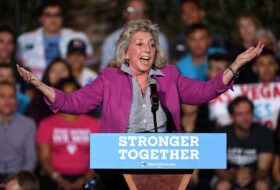
Paul Tonko, a federal House Representative from New York, has renewed his effort to get the federal government involved in regulated online gambling with a new bill for 2024, the SAFE Bet Act. That acronym—Supporting Affordability and Fairness with Every (Bet)—makes for catchier branding than last year’s BOFA, the Betting on Our Future Act. In terms of spirit, though, the two are similar. Both aim to make it harder for the industry to advertise its products.
That said, SAFE Bet is a somewhat gentler proposition. BOFA would have banned all advertising through media regulated by the Federal Communications Commission. SAFE Bet, on the other hand, would only ban ads during sporting events and the publicizing of gambling incentives like bonuses, “no-sweat” bets (the industry’s new term for what used to be called “risk-free”), and odds boosts.
On the other hand, SAFE Bet would restrict certain other industry practices that BOFA didn’t address. It would require affordability checks—a controversial proposal currently being rolled out in the United Kingdom. It also seizes on another moral panic of the moment, banning the use of artificial intelligence to track players’ behavior, personalize promotions, or create products on the fly, such as in-game “microbets.”
Finally, it would bring gambling data into federal jurisdiction. This would involve creating a national clearinghouse for state-level self-exclusion lists. It would also authorize the Substance Abuse and Mental Health Services Administration (SAMHSA) to collect data on the public health impact of sports betting and require the Surgeon General to issue a report thereon.
No Love Lost Between Gambling Industry & Feds
State governments’ attitudes toward gambling vary widely. Conversely, the federal government has historically been standoffish at best and openly adversarial at worst. That has been particularly true when it comes to sports betting and online gambling.
In the past decade, New Jersey and New Hampshire have each had to fight the federal government in its own courts on the subject. New Jersey famously prevailed at the Supreme Court in its effort to overturn the Professional and Amateur Sports Protection Act (PASPA). That victory opened the door for legal sports betting, which has since swept the nation.
New Hampshire fought a less publicized yet still important battle over the Wire Act. This is a prohibition on cross-border sports betting that the Department of Justice had sought to extend to other forms of gambling like online poker. (New Hampshire’s fear was that this interpretation would also come to preclude interstate lottery jackpots.)
The animosity runs both ways. The American Gaming Association (AGA) tends to oppose most federal proposals related to gambling. That includes this year’s GRIT Act, an otherwise-popular proposal to increase funding for problem gambling prevention and treatment programs. The AGA’s objection to that bill is that it relies on money generated by the federal sports betting excise tax. The AGA wants that tax struck down because it’s calculated based on the amount wagered by gamblers and not the amount won by sportsbooks.
Based on this history and the bill’s content, it seems unlikely that SAFE Bet will be well-received by the industry.
Feds Show Little Desire to Intervene
BOFA never got much traction, and the outcome for SAFE Bet may be similar. Since losing its cases over PASPA and the Wire Act, the federal government as a whole has seemed less inclined to try to interfere with states’ independence on the subject of gambling.
That change in the political climate is most apparent with the ongoing fight over Florida’s sports betting model. West Flagler Associates, a local casino operator, has sought to have federal courts deem the model invalid. However, the D.C. Circuit and the Supreme Court have both indicated that they consider it a matter for Florida state courts. Meanwhile, the Bureau of Indian Affairs at the Department of the Interior has formally updated its rules to say it will approve Florida-style compacts so long as they agree with state law.
If statistics presented by the AGA at iGaming NEXT in New York are to be believed, the sentiment may be similar in the legislature. David Forman, the AGA’s V.P. of Research, told the conference audience that awareness of problem gambling has risen sharply among D.C. policymakers. However, he said that hasn’t been accompanied by an increased desire to get involved.
One of Forman’s slides shows the percentage of policymakers saying they’re aware of the issue rising from about 35% in 2022 to around 55% in 2023. Alongside that is another graph showing the share of policymakers saying they believe the federal government should regulate sports betting holding steady at 40%, while 60% say it should be left to states and tribes.





